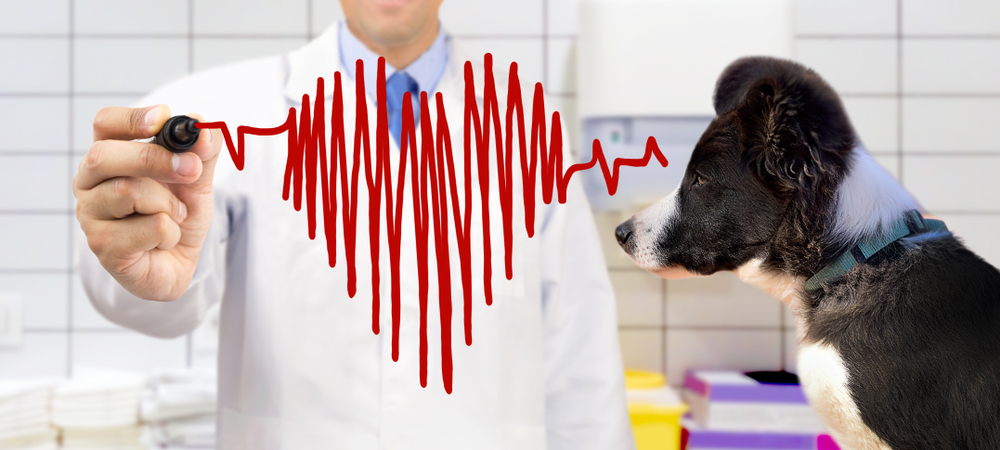Discovering the Crucial Solutions Offered by a Vet Cardiologist: Comprehending Ultrasound and CT Check Methods
Veterinary cardiologists play an essential function in the health of pets by identifying and treating various heart disease. They use sophisticated imaging techniques, such as heart ultrasound and CT scans, to provide accurate analyses. Each approach has its unique advantages and applications. Understanding these strategies is necessary for family pet owners looking for the finest take care of their friends. What elements should family pet owners think about when choosing in between these analysis tools?

The Function of Veterinary Cardiologists in Animal Healthcare
Vet cardiologists play a crucial duty in the medical care of pet dogs, concentrating especially on identifying and dealing with heart-related problems. They have specialized training that enables them to analyze complex diagnostic examinations and recognize numerous cardio problems. These experts use sophisticated methods, such as echocardiography and electrocardiography, to evaluate heart function and structure accurately.Veterinary cardiologists also create tailored treatment strategies that might consist of medicines, way of life adjustments, and, in some situations, surgical interventions. Their proficiency reaches informing animal owners concerning heart health, stressing the importance of normal exams and early detection of prospective problems. Collaboration with basic veterinarians is important, as it assures thorough treatment for animals with suspected heart concerns. By providing specialized solutions, veterinary cardiologists significantly improve the quality of life for animals and provide satisfaction for their owners, strengthening the importance of heart wellness in overall pet dog wellness.
Typical Cardiac Concerns in Family Pets
Typical cardiac problems in pets can considerably impact their wellness and top quality of life. Heart murmurs, different kinds of cardiomyopathy, and congenital heart flaws are among the most widespread conditions that veterinarians run into. CT Scans For Animals. Understanding these concerns is important for animal owners to ensure prompt medical diagnosis and appropriate therapy
Heart Murmurs in Pets
Heart murmurs can be a resource of concern for animal proprietors, they are not always a sign of significant health issues. A heart whispering is an unusual noise generated by turbulent blood flow within the heart. In family pets, these murmurs can be triggered by different aspects, including hereditary heart problems, valve concerns, or perhaps stress during examinations. Numerous animals with heart whisperings lead regular lives without substantial health and wellness impacts. To establish the underlying reason, vet cardiologists typically use analysis strategies such as echocardiograms and Doppler ultrasounds. Early discovery and assessment are necessary, as they may help manage any type of prospective cardiac issues efficiently. Animal owners are encouraged to consult their veterinarian for a comprehensive assessment if a heart murmur is spotted.
Cardiomyopathy Types Explained
Cardiomyopathy incorporates a team of illness affecting the heart muscle mass, resulting in endangered cardiac function in pets. One of the most usual types consist of expanded cardiomyopathy (DCM), hypertrophic cardiomyopathy (HCM), and limiting cardiomyopathy (RCM) DCM mainly affects pets, creating the heart to weaken and enlarge, which lessens its capability to pump blood efficiently. In contrast, HCM is extra common in cats, characterized by the enlarging of the heart walls, often leading to obstructed blood flow. RCM, though much less common, occurs when the heart muscular tissue comes to be stiff, limiting its capacity to full of blood. Each type offers unique difficulties in diagnosis and treatment, requiring specialized vet cardiological assessment to assure peak administration and treatment for influenced family pets.
Congenital Heart Issues
Genetic heart problems stand for a significant classification of cardiac problems in pets, distinct from obtained conditions such as cardiomyopathy - CT Scans For Dogs. These problems are architectural abnormalities present at birth, influencing the heart's normal function. Typical kinds include patent ductus arteriosus, ventricular septal defects, and pulmonic stenosis. Signs may differ commonly, varying from mild to serious, and can include workout intolerance, coughing, and difficulty breathing. Early medical diagnosis with innovative imaging methods like ultrasound is important for reliable monitoring. Vet cardiologists play a crucial role in determining these problems and advising appropriate treatment choices, which might consist of medical administration or medical intervention. Acknowledging genetic heart issues permits for far better end results and improved lifestyle for impacted pets
Comprehending Heart Ultrasound: Just How It Functions
A considerable variety of veterinary techniques currently use heart ultrasound as a vital analysis device for assessing heart health and wellness in animals. This non-invasive strategy makes use of high-frequency acoustic look at more info waves to create pictures of the heart's structure and feature. Throughout the procedure, a vet service technician applies a gel to the animal's breast and makes use of a transducer to release ultrasound waves. These waves jump off the heart and surrounding structures, creating real-time pictures on a monitor.Veterinarians can evaluate different facets of heart wellness, consisting of chamber size, wall surface motion, and valve web feature. In addition, cardiac ultrasound permits the detection of irregularities such as fluid accumulation and congenital heart defects. This method is vital for detecting problems that may not show up through basic radiographs. By providing thorough info about the heart's makeup and efficiency, cardiac ultrasound help in developing effective therapy prepare for pets experiencing heart illness.
The Importance of CT Scans in Diagnosing Heart Conditions
Just how do CT scans boost the diagnosis of heart disease in veterinary medication? CT scans supply comprehensive cross-sectional pictures of the heart and bordering frameworks, allowing vets to imagine complex physiological relationships. This imaging method is particularly beneficial in recognizing congenital heart flaws, cardiac growths, and abnormalities in capillary. By utilizing advanced imaging algorithms, CT scans can evaluate heart chamber dimensions and function, supplying a complete sight that may be hard to attain with traditional methods.Additionally, CT angiography can picture blood flow and identify areas of stenosis or obstruction, which is vital for preparing possible treatments. The rate and precision of CT scans likewise promote quick diagnoses, essential in emergency circumstances. Eventually, the unification of CT scans into veterinary cardiology substantially enhances the accuracy of diagnoses, allowing targeted therapy plans and enhancing person end results for pets struggling with heart disease.
Comparing Ultrasound and CT Scan Methods
While both ultrasound and CT scans are very useful tools in veterinary cardiology, they offer distinct advantages and restrictions that influence their use in identifying heart disease. Ultrasound, or echocardiography, offers real-time imaging of the heart's structure and function, allowing veterinarians to evaluate heart chambers, shutoffs, and blood circulation. It is especially efficient for assessing conditions like congestive heart failure and cardiomyopathy. Ultrasound may be limited in imagining particular physiological structures due to client size or obesity.In comparison, CT checks offer detailed cross-sectional photos of the heart and surrounding cells, making them suitable for determining structural problems, lumps, or vascular problems. CT scans provide detailed understandings, they need sedation and may entail radiation direct exposure. Ultimately, the option between ultrasound and CT checks depends on the details scientific scenario, the person's problem, and the info needed for an accurate medical diagnosis.
Treatment Alternatives Readily Available With Veterinary Cardiology
Veterinary cardiology supplies a variety of treatment options customized to attend to various heart conditions in pets. Treatment strategies typically start with lifestyle modifications, consisting of diet modifications and workout modifications, targeted at improving overall heart health and wellness. Medicines play an important function, with cardiologists prescribing medications such as diuretics, beta-blockers, and ACE inhibitors to boost and manage signs cardiac function.In more severe situations, interventional treatments, such as balloon valvuloplasty or stent positioning, might be necessary to alleviate blockages or enhance blood flow. For particular hereditary heart problems, medical alternatives might be checked out to deal with architectural problems. Furthermore, continuous tracking and follow-up care are crucial elements of a complete treatment plan, permitting for prompt modifications based upon the pet dog's response to therapy. In general, veterinary cardiology focuses on offering efficient, personalized like enhance the wellness and health of pet people with heart disease.
Exactly how to Prepare Your Family Pet for a Heart Examination
Preparing a pet dog for a heart examination is necessary to assure exact outcomes and a smooth procedure. Owners ought to first schedule the appointment with the veterinary cardiologist and review any kind of details demands or worries. It is advisable to withhold food for a minimum of 12 hours prior to the assessment, as this assists improve imaging top quality throughout procedures like ultrasound or CT scans.Additionally, maintaining a tranquil setting on the day of the consultation can help in reducing the animal's stress and anxiety. It is valuable to bring along any type of appropriate medical documents, including previous tests and medications (Cancer Veterinary Near Me). Owners need to additionally make specific that their animal fits and leashed throughout transport to continue reading this the facility. Acquainting themselves with the evaluation procedure can aid and reduce worries in asking notified questions throughout the appointment. By complying with these steps, proprietors can add considerably to the effectiveness of the cardiac evaluation
Regularly Asked Inquiries
Exactly how Lengthy Does a Cardiac Ultrasound or CT Scan Take?
The duration of a cardiac ultrasound generally varies from 30 to 60 mins, while a CT scan may take roughly 15 to half an hour. Factors such as the person's problem can affect these time estimates.

Are There Any Type Of Dangers Connected With These Analysis Treatments?

Can I Keep With My Pet Throughout the Procedure?
The veterinary center's policy normally dictates whether family pet owners can remain during procedures. While some centers motivate owner visibility for comfort, others may need separation to guarantee security and optimal conditions for diagnostic imaging.
Just how Much Do These Diagnostic Examinations Typically Cost?
The costs of analysis tests, such as ultrasound and CT scans, generally vary based on location and center. Usually, prices range from a couple of hundred to over a thousand bucks, reflecting the intricacy and modern technology involved.
What Is the Recuperation Refine After a Cardiac Evaluation?
The healing process after a heart analysis involves keeping track of the pet dog for any kind of prompt reactions, making certain convenience, and limiting physical activity. Veterinarians generally provide post-evaluation instructions to lead pet dog proprietors throughout this important recovery period. Heart whisperings, different kinds of cardiomyopathy, and hereditary heart defects are among the most widespread problems that veterinarians come across. A heart whispering is an irregular audio produced by stormy blood circulation within the heart. Cardiomyopathy includes a group of diseases affecting the heart muscle, leading to compromised cardiac feature in animals. Congenital heart problems stand for a substantial group of cardiac issues in pet dogs, distinct from obtained problems such as cardiomyopathy. Ultrasound, or echocardiography, provides real-time imaging of the heart's structure and function, enabling vets to examine heart chambers, valves, and blood flow.